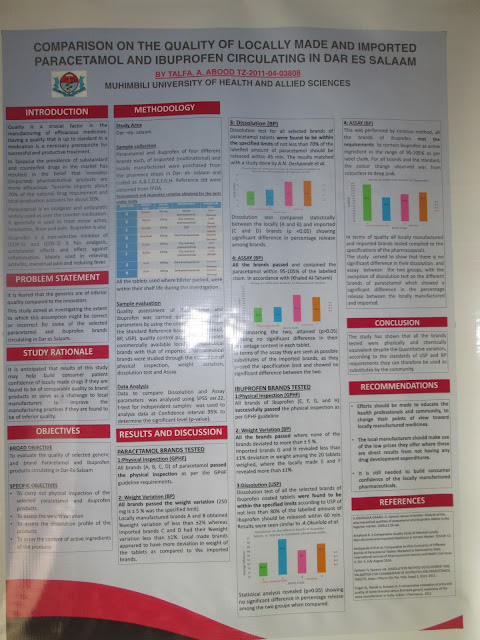Presenter of project Lugano
Mwankemwa INTRODUCTION
The availability of ACTs as first line drugs
in treating uncomplicated malaria is significant in eradication of the disease.
Results from this study will be
useful for planners and government to plan and improve strategies on ensuring
that ACTs are available at reasonable
price(subsidized) in community pharmaciesconclusion
Availability
of ACTs
remained a challenge in the outlets in
Tanzania. First-line therapy the
ACTs(subsidized) were less available , high price were observed for ALUs(not subsidized)
. other artemisinin derivatives were
more available than ALUs and more expensive. Challenges in high
price(unsubsidized) and out of stock of ACTs(subsidized) has resulted into use
of alternative antimalarial which was removed as first line , Collectively,
availability, price and affordability of the drugs affect policy of uses of ACTs as first line
the results showed that the significant extent of variability in labeling was observed
qualitative lists of excipients were mostly missing
method of administration, absence of name and adders of manufacturer
ciprofloxacin showed the most variability























Comments
Post a Comment